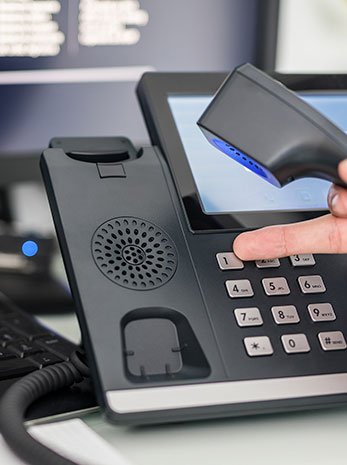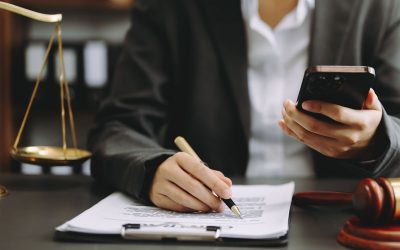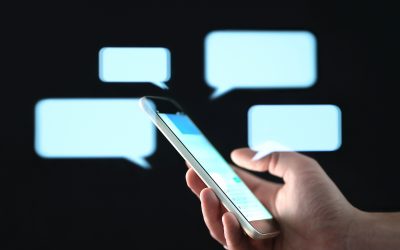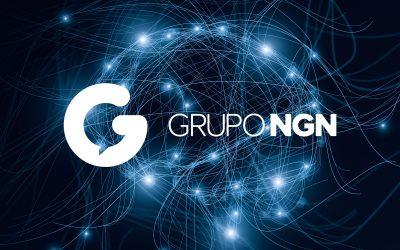
Disclaimer
Before we go any further, I must point out that nothing in this article should be interpreted as legal advice. While the opinions discussed here were concluded after discussions with leaders in the contact center space – some of whom are attorneys – I am not an attorney and Grupo NGN does not provide legal advice. We strongly recommend you seek independent counsel to discuss strategies for handling all legal requirements. If you don’t have a trusted attorney that specializes in contact center compliance regulations, please reach out to us and we’d be happy to make recommendations.
Analysis
This year, Florida introduced at least 3 bills specifically targeting telemarketing. These bills were introduced by both parties, and while they had varying verbiage, they all had somewhat similar goals. Senate Bill 1120 was what was settled on, and, in this article, I plan to review the most significant changes.
“ The modern consumer does not want to be harassed, and calling more often than once every 4 hours during the allowed 12 hour calling window in itself seems excessive.“
Some of the more minor changes involve:
- Telemarketing calls are limited to a maximum of 3 per 24-hour period
- Calling hours are restricted from 8 AM – 8 PM local Florida time
- Prohibits telemarketers from displaying “a different caller identification number than the number the call is originating from to conceal the true identity of the caller”
I see these as minor simply because the first two can be considered common sense. The modern consumer does not want to be harassed, and calling more often than once every 4 hours during the allowed 12 hour calling window in itself seems excessive. Likewise, ending calling at 8 PM versus 9 PM may also lower the risk as being seen as a “nuisance” caller. Many people are putting their children (or themselves) to bed between 8 and 9, so this probably isn’t an ideal hour to be making sales calls.
It is also important to keep in mind that Florida is in two time zones, so be certain to adjust accordingly. If you are doing a time zone association by area code alone, you run a high risk of violating this restriction, as some Florida area codes are in multiple time zones.
I classified the caller ID rule as low risk because this really isn’t very far from the existing federal laws about accurate caller ID. There are allowances in this bill to substitute your own number for the number of a client on whose behalf you are calling, so the real purpose behind this rule is to reinforce the federal requirements to provide accurate caller ID. As long as you are following the rules around the called party being able to call that number, find out why they were called, get put on a DNC list, etc., this should not present a change to any reputable company. Why add this here when it already exists at the federal level? We’ll get into that shortly.
There were two changes introduced that I would consider “major”. The first is that Florida has introduced their own definition of an auto dialer, and they prohibit telemarketing calls from one without express written consent. The bill states:
“A person may not make or knowingly allow a telephonic sales call to be made if such call involves an automated system for the selection or dialing of telephone numbers or the playing of a recorded message when a connection is completed to a number called without the prior express written consent of the called party.”
This is a giant shift from the former TCPA definition of an automated dialer, as much of the original TCPA ATDS interpretations revolved around whether or not there was human intervention involved with the dial. Many technology providers, including Grupo NGN, created solutions that would provide many of the efficiencies of an auto dialer, but all automatic dialing was disabled in favor of a “click-to-dial” approach. There were even solutions that introduced technologies such as “clicker agents” that attempted to simulate manual predictive dialers. Of course, much of this is moot after the April 1, 2021 SCOTUS opinion letter on this topic.
But what is the significant difference? Note the wording “automated system for the selection or dialing”. Most of the “click-to-dial” systems introduced in response to the TCPA’s earlier interpretation of an ATDS would still automatically select records for the agents – they just would not automatically dial. In the new Florida Bill, that’s not enough – by virtue of simply selecting the record automatically for the agent, the system would likely be in violation of Florida’s Telemarketing Act. The word “or” is the key to this distinction.
This leads us into the second significant change – the introduction of private right of action. If you’re not familiar with that term, it provides the right for a private party to seek damages from the offending party. This was perhaps the biggest complaint that came from the TCPA ATDS regulations several years ago – consumers began suing providers for damages. Multimillion dollar class action lawsuits were not uncommon, especially against brand name organizations (Dish, Caribbean Cruise, AT&T, etc.). This created almost an entire industry for professional litigators who would attempt to trick companies into breaking the law. The introduction of private right of action also explains why the statue is seemingly copying portions or federal guidelines such as truthful caller ID – they are creating a pathway for a consumer to seek direct payment for violations.
What Types of Phone Numbers Does This Apply to?
While TCPA ATDS regulations were geared mostly toward cellular numbers, it is important to point out that this regulation applies to ALL types of phone numbers – landlines, cellular, and anything in between. Much like TCPA ATDS requirements, this also does not distinguish between consumer and business numbers – all Florida phone numbers are covered here. Finally, while certain call types are exempt, you may be entering treacherous waters if your call is initially exempt because it is not a true “telemarketing” call but then later has a potential sales option. Did that call then lose its exemption? This is definitely an area I would recommend discussing with your legal team.
The bigger question may be how you know if a called party is in the state of Florida. In this day and age, it is not uncommon for people – like myself – to have a cellular phone number in one state even though they currently live in a state 2,000 miles away. According to the bill, the assumption is to be made that any number with a Florida area code is to be presumed to be covered by these regulations.
What if you have a billing address for a customer that is in Florida, but they have an Illinois phone number? In my opinion, this number would NOT be protected based on the language in the bill, but this again is where you are best to consult with your legal advisor before adopting a strategy.

What does this mean for inbound contact centers?
With all of this discussion around calling restrictions, are inbound contact centers affected at all by this? The answer depends on your circumstances. For example, some contact centers include features commonly known as “Virtual Hold”, which allows inbound callers to hold their place in line for an agent without staying on the phone. It is my opinion that risk can be introduced in returning those calls.
First and foremost, accurate caller ID is a must. Using inaccurate caller ID can put you at risk in numerous areas across the country (not just in Florida). As stated before, this isn’t necessarily a bad thing, though. This can help establish credibility and potentially increase the chances that the customer will answer the call (i.e. they see 844 GO GRUPO on their caller ID and know to answer since they requested that call). This, combined with potential benefits from A level attestation with STIR/SHAKEN, can decrease your likelihood of falling victim to blocking or labeling.
A less obvious consideration may be time of day calling. While most of these regulations relate to telemarketing calls (for which the state has a definition and exemption list), time of day rules may apply to all calls. That said, if you are going to return a call outside of the prescribed 8 – 8 window, you will want to make sure you are legally allowed to do so.
An even more interesting consideration is around the usage of an auto dialer. Some virtual hold systems use an “IVR Hold” method, where the customer stays on hold but is called back by the IVR – not the agent – when the IVR believes it is almost the customer’s turn to be connected to an agent. Other systems may wait until the call is with an agent, but they will still automatically dial as soon as connected. Earlier in this article, I discussed the scary introduction of terminology around “automatic selection” of records for calling, but let’s not forget that this bill also bans (absent of express written consent) automatic dialing as well. In my opinion, both of those options of calling fall into that latter category.
I have spoken with some who have suggested that common sense *could* be expected from a judge who would view these calls as exempt because they were requested by the called party. I see two holes in this theory. The first is that the bill removed this language that was previously in the statute:
Nothing herein prohibits the use of an automated telephone dialing system with live messages if the calls are made or messages given solely in response to calls initiated by the persons to whom the automatic calls or live messages are directed or if the telephone numbers selected for automatic dialing have been screened to exclude any telephone subscriber who is included on the department’s then-current “no sales solicitation calls” listing or any unlisted telephone number, or if the calls made concern goods or services that have been previously ordered or purchased.
Note the highlighted section. Previously, calls were exempt if they were made in response to a customer request. With that exemption removed, it begs the question as to whether or not it was intentionally removed so that Florida residents could not forgo their new “protections”.
There is also the consideration of mistakes. How would a situation be handled if someone called the system and provided the wrong number? When you return their call, you call a party who did not provide consent to be called.
So what’s the solution? I don’t think these calls could in any way be considered automatically selected – the calls were manually “queued” by a caller. I think the bigger risk is in automatically dialing the records. I would strongly recommend that all virtual hold calls to Florida numbers be performed only by an agent, and only though some sort of method that involves human intervention. If you don’t reach the party, make sure you limit subsequent attempts to call them back to meet state regulations around attempts per day, and do not use a system that will automatically select or dial them for a retry.
Final Thoughts
Like any new regulation, the next six months will be an important time of observation. Advocacy groups like PACE will be closely monitoring litigation around these new laws, and we will soon learn more about how courts are enforcing complaints. As we saw with TCPA, I expect to see opportunistic parties use this as an excuse to extort money from companies who are truly trying to operate in a fully compliant fashion, so I recommend a cautious approach to any outbound sales call in the state of Florida until this has had time to be “broken in”.
How Can Grupo NGN Help?
Fortunately, nothing in this new regulation falls outside the current capabilities of NGNCloudComm, Grupo NGN’s omnichannel contact center platform. Forced manual dials, predial scrubs, virtual hold, access to records without automatic selection, time of day calling control, support for proper time zone identification, and much more are standard features in our product. Our IVRs can even easily determine if a caller is in the state of Florida if you want to have special handling for that state!
Existing customers can reach out to the support team for questions regarding usage of any of these features. For future customers, please contact our sales team or connect with me on LinkedIn, and we can discuss how our award-winning technology can help you sleep better at night.




